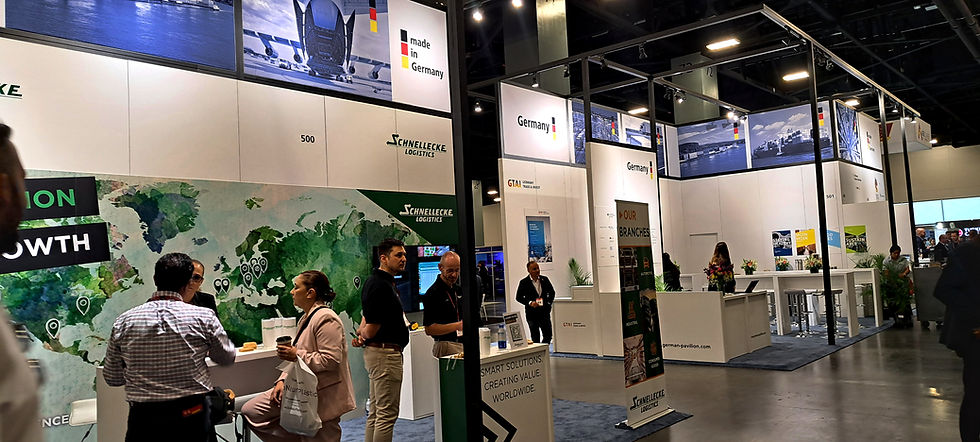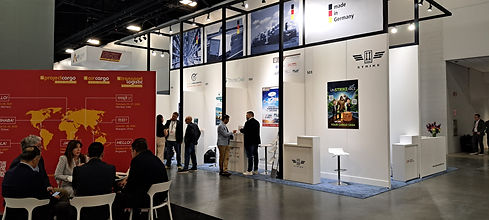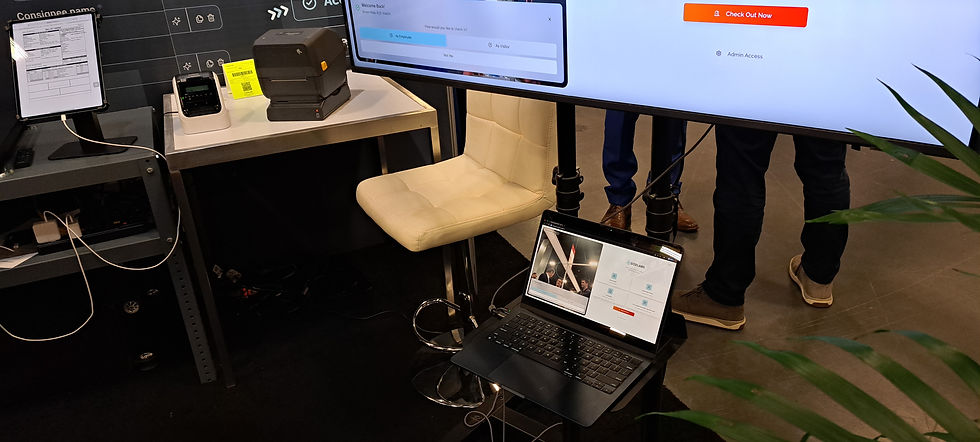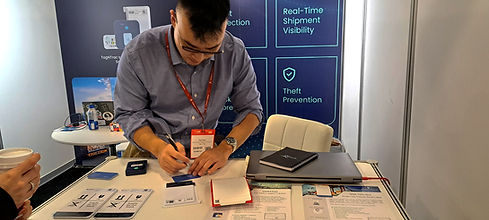

Miami Aviation 2025:
Supply Chains Soar, Tariffs Don’t
by Lynn Miteva


Over 6,000 participants and 250+ exhibitors gathered at the Miami Beach Convention Center for Transport Logistic & Air Cargo Americas 2025.
Despite media hype about tariffs, business moved forward, deals were made, and the mood was upbeat.
The truth? Tariffs aren’t the problem. The real friction comes from legacy systems that refuse to let go.
Even when inefficient or outdated, these old methods cling to dominance.
New technologies—AI, IoT, and smarter logistics solutions—are here, but often struggle to gain attention in a sector dominated by “usual suspects” with flashy booths, giveaways, and marketing clout.






The Old Guard and the Innovators
The German Pavilion and major cargo carriers dominated the floor with polished displays, marketing blitzes, and press releases. These are the “usual suspects,” and while familiar, they rarely deliver game-changing innovation.
Instead, the real excitement came from fresh players—companies introducing AI and smart systems capable of helping the old machines perform better.
These technologies don’t just improve efficiency—they boost accuracy, speed, and reliability across the supply chain.
And while few realize it, efficient supply chains aren’t just a business concern—they are critical to the global economy.
On-time deliveries, reduced errors, and streamlined operations translate directly into trade fluidity, economic growth, and higher productivity worldwide.

AI in the Chain: Sizelabs
Sizelabs, led by Simon Mejia and Juan Santiago Acevedo, is transforming how packages are handled in logistics.
Traditionally, measuring packages is a manual and error-prone process: workers must measure length, width, and height, weigh the package, and then check that the shipment matches the invoice.
Mistakes happen constantly—labels are misread, measurements are off, or data is entered incorrectly—which causes delays, incorrect billing, and disputes between carriers and clients.
Sizelabs’ AI automates this entire process: it scans any label, measures exact dimensions and weight, and matches the data to the invoice instantly.
Why it matters: packages move faster, disputes vanish, billing is accurate, and downstream systems like conveyors and sorters receive reliable data. The result is a smoother, more efficient supply chain, reducing bottlenecks and errors that can ripple through global trade.




From left to right: The founders of AI SizeLabs - Simon Mejia and Juan Santiago Acevedo. Chris Mitev CEO Rikeza Group

Milwaukee: A Rare Public-Private Cargo Hub
Crow Holdings and CBRE are developing MKE South Cargo, a rare public-private partnership in the U.S., on the site of a former Air Force base at Milwaukee Mitchell International Airport.
Just 70–80 miles from Chicago O’Hare, which handles over 2 million metric tonnes of cargo annually, this hub provides a less congested, cost-efficient alternative for shippers, with direct I-94 access for seamless air-to-truck transfers.
The facility will feature a 337,000-square-foot cargo building capable of accommodating large freighters like the Boeing 747-400.
Jack Rabenn, VP at Crow Holdings, calls it risky but rewarding—risky because the development is speculative, funded upfront before securing tenants, and relies on the P3 model, which is uncommon in the U.S.. Investors including CalSTRS are backing it, showing confidence in its long-term potential.
Why it matters: efficient cargo hubs keep trade flowing, reduce bottlenecks, and support regional and global economies—a prime example of how private investment can modernize U.S. logistics infrastructure.


Ted Gates CBRE and Jack Rabenn Crow Holdings.

Tag-n-Track: Seeing Everything, Losing Nothing
GPS trackers for cargo are everywhere—tracking location is nothing new.
Tag-n-Track’s uniqueness lies in how it combines multiple data streams into a single, compact, AI-powered system. Using a small, attachable multi-sensor device, it monitors location, temperature, humidity, and shock, and fuses this data with AI analytics to give real-time, actionable insights.
Why it matters: Most GPS devices simply show where a package is; Tag-n-Track prevents damage, ensures compliance, and predicts risks before they happen.
For industries like pharma, healthcare, food & beverage, and aerospace, this means safer shipments, fewer disruptions, and more reliable supply chains, which directly impacts trade efficiency and the global economy.

Kye Swen, Tag-n-Track

Tariffs Aren’t the Problem—Resistance Is
Across Miami, the message was clear: legacy systems cling to the past, even when new technologies can vastly improve performance.
AI and other innovations are here—but they must find ways to attract attention in a sector dominated by flashy legacy companies.
Supply chains are not just operational backbones—they are vital to global trade and economic performance.
Efficiency, speed, accuracy, and reliability in logistics directly impact productivity, international commerce, and GDP growth.
The innovators at Miami may not have the biggest booths, but they enable the old system to deliver better, faster, and smarter, ultimately fueling economic progress worldwide.
Tariffs? What tariffs?